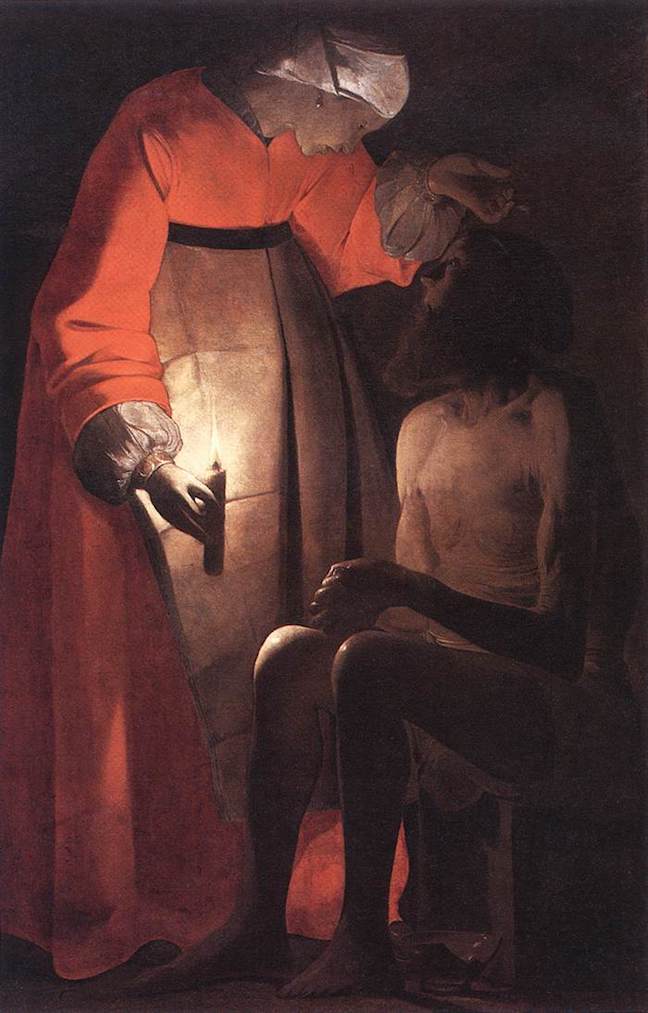In his treatise “On Pastors,” Augustine wrote: “’You have failed to strengthen the weak,’ says the Lord. He is speaking of wicked shepherds, false shepherds who seek their own concerns and not those of Christ.”
The turmoil about deviant pastors and bishops is not wholly a new one. Christ, in a famous passage, stated that the Scribes and Pharisees sat on the Chair of Moses. Follow what they say, not what they do. The weak need the strength of the strong. But the strong can choose themselves over others.
The corruption of the shepherds affects more than themselves. Their corruption essentially consists in their establishing their own rules, not in following the example laid down by Christ for that office.
God is often blamed for permitting evil in the world. This tolerance, it is claimed, proves that He is not God, or even that He causes evil by not preventing it. Augustine is famous for stating that God could permit evil in a good world if, and only if, by allowing it, a greater good could follow. Evil can thus be the occasion of an unexpected good coming about.
We would not know what mercy is, for instance, if we had nothing to forgive or be merciful about. We are not, however, to do evil in order that good can happen. But if we do evil, the Lord can bring something good from our actions, from the good that remains in us in spite of our sins.
“There are men who want to lead a good life and have already decided to do so,” Augustine continued, “but are not capable of bearing sufferings, even though they are ready to do good. Now it is part of the Christian’s strength not only to do good works, but also to endure evil.”
Some of this understanding of evil was already in Plato. His fundamental principles were these: 1) It is “never right to do wrong.” 2) “Death is not the worst of evils.” 3) “Nothing evil could harm a good man.” 4) “It is better to suffer evil than to do it.”

Initially, these principles seem counter-productive. Why not return evil for evil? Why is the man who does both evil and good not better than the one who restricts himself to the good? To do what is evil means to place ourselves first. We are not to lay down our lives for our friends. We are not to lay them down at all if we can help it. We are to trust both our sword and our primacy.
In 1977, Josef Ratzinger wrote that modern thought wants to “redeem suffering by removing it: not redemption through suffering, but redemption from suffering.” Man does not expect “divine assistance but the humanization of man by man.” (Co-Heirs of the Truth, 123)
Man takes the place of God. He will remove suffering by his own means. The ways of God through endurance and suffering are rejected. We are left with what we can make of ourselves in this world. Having set out in a noble cause, as is often the case, we make things worse by following our own rules.
Charlie Brown and Lucy are walking home after school. He asks her: “Did the little boy who sits in front of you cry again today?” Lucy turns to Charlie to explain: “He cries every day! All the simple childhood fears. . . .Fear of being late for school, fear of his teacher, and fear of the principal.”
In the third panel, she goes on: “Fear of not knowing what room to go to after recess, fear of forgetting his lunch, fear of bigger kids, fear of being asked to recite. . .” Finally, Lucy, undaunted, continues: “Fear of missing the school bus. Fear of not knowing when to get off the school bus. . . .Fear. . .”
To all of this, Charlie, obviously dazed by it all, simply says: “Good Grief!!” (You’re the Greatest, Charlie Brown, 1964).
As the weepy little boy in front of Lucy at school had to learn, we have to endure many evils to survive in this world. Some of them are pretty messy. We wonder what the world might be like if noting evil or even inconvenient were in it.
The Lord gave us an imperfect world to see what we would do within it. Our record is our history. We are supposed to make an already good world more livable. But we can, and often do, make it a hell on earth. We have to endure the sins of others. They have to endure ours.
Some hate God for putting us in this situation of having to choose the good and endure what is evil. Others realize that this fallen world is the only one in which we ourselves could exist. Charlie was right – even our “grief” can be “good” if we endure it.
*Image: Job Mocked by His Wife by Georges de La Tour, c. 1630 [Museum of Ancient and Contemporary Art, Épinal, France]














